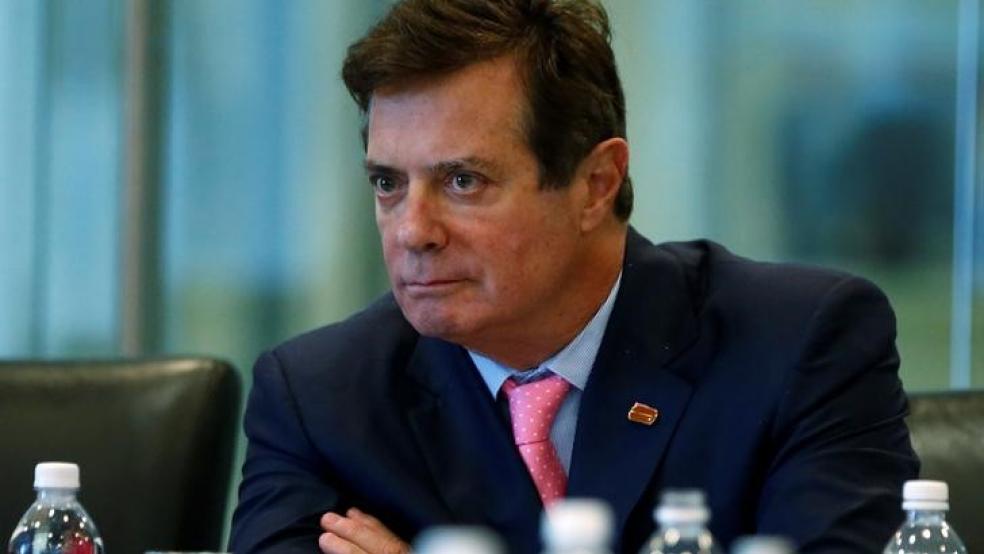If Donald Trump is worth $10 billion, as he has claimed, then he is effectively financing his high-flying presidential campaign out of petty cash.
As The Washington Post reported, the real estate magnate dipped into his own checking account to pump an additional $6.9 million into his presidential campaign in February, based on an analysis of new Federal Election Commission reports.
Related: Arizona and Utah Provide First Big Test of the ‘Stop Trump’ Movement
Trump frequently boasts that he self-finances his campaign so that he isn’t beholden to Washington lobbyists and special interest groups. That gives him license to speak his mind about establishment politicians, illegal immigrants, Muslims, foreign leaders, the news media and just about anyone else who falls into his crosshairs.
According to the Post analysis, he has provided loans or outright gifts to his campaign organization totaling nearly $25 million since he launched his drive for the GOP presidential nomination last spring.
In truth, Trump doesn’t pay for everything himself. Supporters have kicked in about $9.5 million, including $2 million that made its way into Trump’s campaign coffers in February. Still, he is using his personal wealth to cover the lion’s share of the cost for now.
However, if Trump makes it to the general election, the cost of campaigning could suddenly become quite a bit higher and Trump will have to think long and hard about how much of that he will be willing to cover.
By the time the dust settled after the 2012 presidential campaign, President Obama and Republican nominee Mitt Romney and their respective allies had spent roughly $1 billion each. Obama’s campaign raised $632 million while Romney’s campaign raised $389 million. But when spending by super PACs and other outside groups is factored in, the Democrats overall spent $964 million on the campaign, while Republicans spent $1.1 billion.
Related: Tuesday Primaries Could Push Trump to Do the Unthinkable: Ask for Help
The cost this time is likely to be higher – at least for an ordinary candidate.
“If [Trump] can afford a billion dollar campaign, I guess he could keep going” with self-funding, said Sheila Krumholz, executive director of the Center for Responsive Politics, a watchdog group. She added that if Trump chooses to finance his general election campaign, he ultimately would raise money after the election to repay himself, as other successful self-funding politicians have done in the past.
“Ultimately most people who self-fund don’t really self-fund – they pay themselves back,” she said in an interview Monday. But if a candidate loses, it is far more difficult to raise money to reimburse himself. And Trump has emerged as such a disruptive force within his party that many GOP donors would think long and hard about helping him improve his personal balance sheet after a brutal campaign.
With Trump, though, it’s hard to anticipate precisely what might happen because “there’s no playbook for this candidate in the modern age,” Krumholz noted.
Related: Is Trump Leading the Republican Party to the Edge of a Cliff?
Last July, Trump filed his personal financial disclosure with the FEC claiming a net worth “in excess of $10 billion” and income in 2014 of $362 million. Forbes, which has been tracking Trump’s finances for decades, contends he grossly exaggerated and that his net worth is actually closer to $4 billion.
Whatever the actual figure is, Trump clearly has plenty of money at his disposal. And given his celebrity, he often doesn’t have to spend it.
Most importantly, Trump can command as much free news media attention as he wants, leaving his rivals standing on the sidelines while he dominates the news cycle. With a corporate jet and helicopter at his disposal and private properties sprinkled across the country, Trump until now has run a fairly low-overhead campaign, with often skeletal operations on the ground.
Politico reported in February that Trump’s allies had urged him to invest more heavily in technology to identify and mobilize his supporters in Iowa and other early primary states. But he resisted, arguing that his sheer star power was all that was needed to bring out the voters. He was wrong about that in Iowa, where Cruz won the first-in-the nation GOP caucus, aided by a sophisticated voter ID system.
Related: Kasich: Here’s How I’ll Win the Nomination – and the Election
But it has been hard to argue since then that Trump’s low-overhead approach isn’t working. Trump has won 18 of the 30 GOP primary and caucus contests this year and is well on his way to sewing up the nomination.
During the early contests in Iowa, New Hampshire and South Carolina, Trump spent $9.5 million of his own money – including $3.46 million of paid media buys, $1.1 million for printing and design services and $587,000 for event production, according to The Washington Post.
That spending pales by comparison with that of Cruz, who is desperately trying to play catch up. Cruz burned through $17.5 million in February, easily his most costly month and one that has left the Texas conservative with depleted cash reserves. The senator began this month with $8 million at his disposal, down substantially from the previous month, but much higher than the $1.25 million of cash on hand for Kasich.
Whether intentionally or not, Trump is pioneering an unprecedented type of political campaign that is both self-funded and low-cost, and there’s good reason to think he can ride it into the general election. As Krumholz noted, Trump is a unique figure and has already rewritten the book for national politics. While it would still take a wealthy man to pull it off, maybe Trump doesn’t need to spend $1 billion like Romney did, because he’s a celebrity and he’s getting so much media coverage for free.





